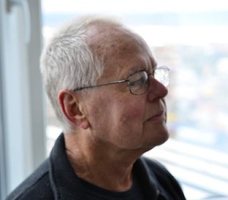
Someone asked a Rabi “Why is it that whenever I ask you a question, you always answers with another question?”. The Rabi answered “Well, why shouldn’t I?”.
We are in love with answers. All through school we were given questions to answer, an usually marked according to whether the answer was correct or not. Heinz von Foerster says that there are two different kinds of questions - legitimate and illegitimate. Illegitimate questions are ones where the answer is already known, while legitimate questions are one where the answers are not known. It follows that all of our schooling was saturated with illegitimate questions which conserve the status quo and inhibit creativity and exploration.
The word “arrogant” has Latin roots and translates into “don’t ask”. If someone already has the answer, why would they ask? It’s only those who are not arrogant, who don’t know the answer or are not prepared to settle for the “correct” answer that can dare to explore, to look at what everyone else has looked at and no-one else has seen.
We can contrast the stultifying, tranquillising result of answers with the expansive and enlivening mood around questions.
It is only when we dare to put aside what we “know” that we have the opportunity to look into the mystery that no answer can do justice to. Wittgenstein wrote “Whereof one cannot speak, thereof one should pass in silence”. For me his “silence” is the sound of the sacred.
In his first chapter Lao Tzu writes “Looking within one can see the mystery. Looking without, one can see the manifestations.” We all know about the manifestations, but it is so sadly tempting to overlook the mystery, to trade numinous for numbness.
Fritz Pearls invited “Lose your mind and come to your senses”.
Erickson reminded us that we cannot know the meaning of a client’s language, and opened the anthropological exploration of each unique individual and the world that their language reveals. He also wrote “Life isn’t something that you can give an answer to today. You should enjoy the process of waiting, the process of becoming what you are. There is nothing more delightful than planting flower seeds and not knowing what kind of flowers are going to come up” and “You see, you don’t know what your goals are. We lower our goals only in the process of getting there … You don’t know what the baby is going to become. Therefore, you wait and take good care of it until it becomes what it will”.
Let the uncertainty, and so the learning … continue … so that in the mystery, the sacred can appear.
And here's a poem curtesy of my friend Dan Clurman ...
The Inner History of a Day
No one knew the name of this day;
Born quietly from deepest night,
It hid its face in light,
Demanded nothing for itself,
Opened out to offer each of us
A field of brightness that traveled ahead,
Providing in time, ground to hold our footsteps
And the light of thought to show the way.
The mind of the day draws no attention;
It dwells within the silence with elegance
To create a space for all our words,
Drawing us to listen inward and outward.
We seldom notice how each day is a holy place
Where the eucharist of the ordinary happens,
Transforming our broken fragments
Into an eternal continuity that keeps us.
Somewhere in us a dignity presides
That is more gracious than the smallness
That fuels us with fear and force,
A dignity that trusts the form a day takes.
So at the end of this day, we give thanks
For being betrothed to the unknown
And for the secret work
Through which the mind of the day
And wisdom of the soul become one.

Beautiful thanks Rob.